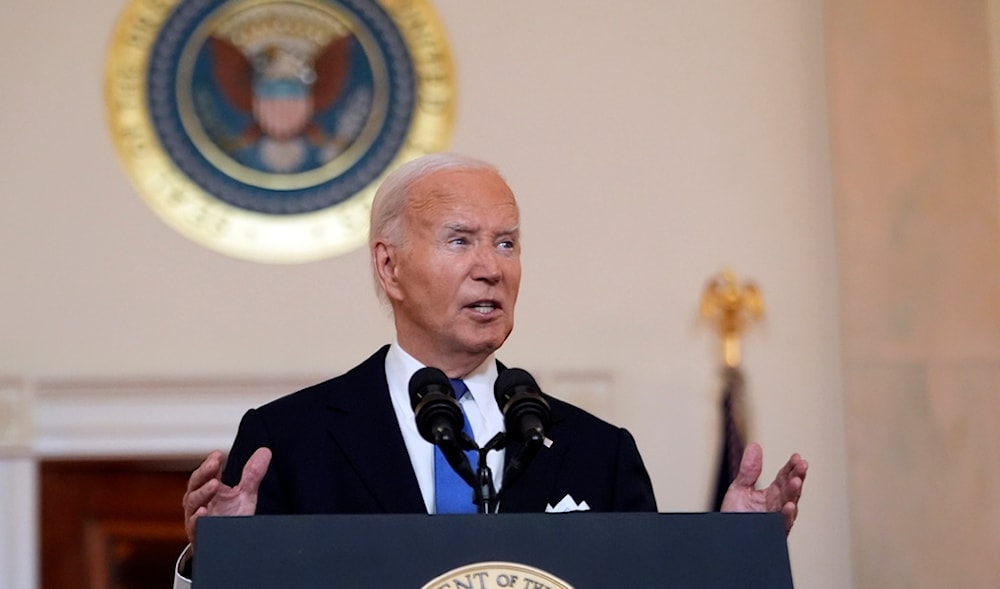Biden says Supreme Court immunity ruling sets 'dangerous precedent'
Joe Biden warns about the consequences of the Supreme Court's ruling, especially if Donald Trump wins the presidency.
-

President Joe Biden speaks in the Cross Hall of the White House on Monday, July 1, 2024, in Washington. (AP)
US President Joe Biden said the Supreme Court's ruling to grant Donald Trump immunity from legal prosecution sets a "dangerous precedent."
In a press conference, Biden said the law was equally imposed on everyone in the United States, and that there were "no kings in America," a claim that fundamentally changed with the Supreme Court's ruling earlier on Monday.
"For all practical purposes, there are virtually no limits on what the president can do. It’s a fundamentally new principle and it’s a dangerous precedent because the power of the office will no longer be constrained by the law even including the Supreme Court of the United States," he said.
He also recalled the Capitol riots of January 6, 2021, allegedly orchestrated by former President Donald Trump, saying it was now difficult for the people to get answers on what truly happened.
Expressing his concerns for US democracy, Biden used the court's ruling to influence his odds during the upcoming elections, saying "The American people must decide if they want to entrust... the presidency to Donald Trump, now knowing that he’ll be even more emboldened to do whatever he pleases whenever he wants to do it."
On the Supreme Court's ruling
According to a ruling by the US Supreme Court on Monday, former President Donald Trump can claim immunity from prosecution on election subversion allegations relating to official conduct as president, but he may still face prosecution for unofficial actions.
Trump, the leading contender in the Republican presidential primary is accused of conspiracy to impede an official proceeding, obstructing and attempting to obstruct an official proceeding, and conspiring against rights in a case that constitutes one of the four criminal indictments lodged against him. He pleaded not guilty in all instances and asserted that he possesses absolute immunity from criminal prosecution concerning actions connected to his presidential duties.
The court cited in its ruling that constitutional separation of powers means "the nature of Presidential power entitles a former president to absolute immunity from criminal prosecution for actions within his conclusive and preclusive constitutional authority. And he is entitled to at least presumptive immunity from prosecution for all his official acts. There is no immunity for unofficial acts."
Lower courts refused Trump's petition to dismiss the election subversion accusation against him, citing presidential immunity, and declined to rule on whether the alleged activity involved official acts.
Certain charges in the Trump case are easily characterized, while others raise "more difficult questions," according to the judgment.

 3 Min Read
3 Min Read








